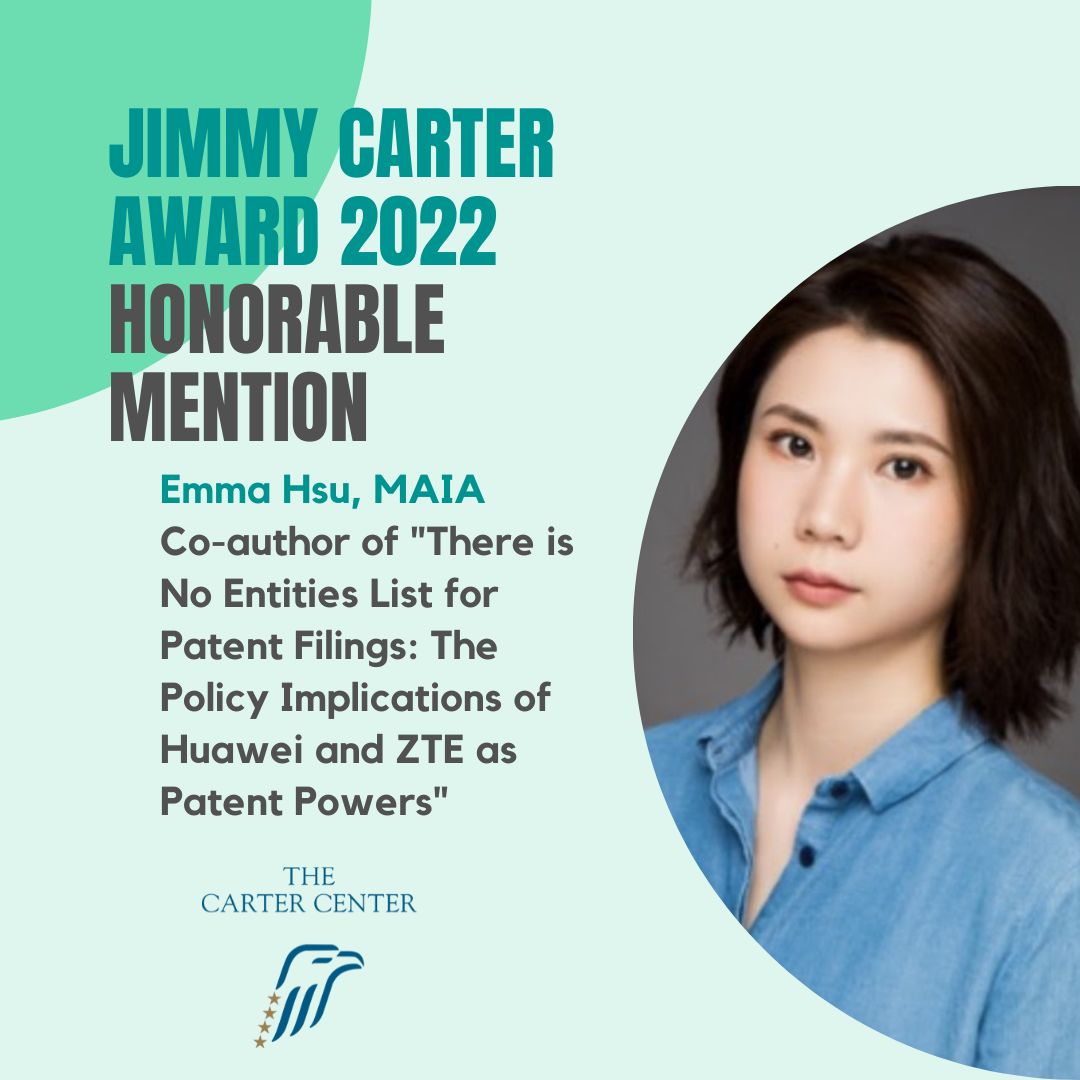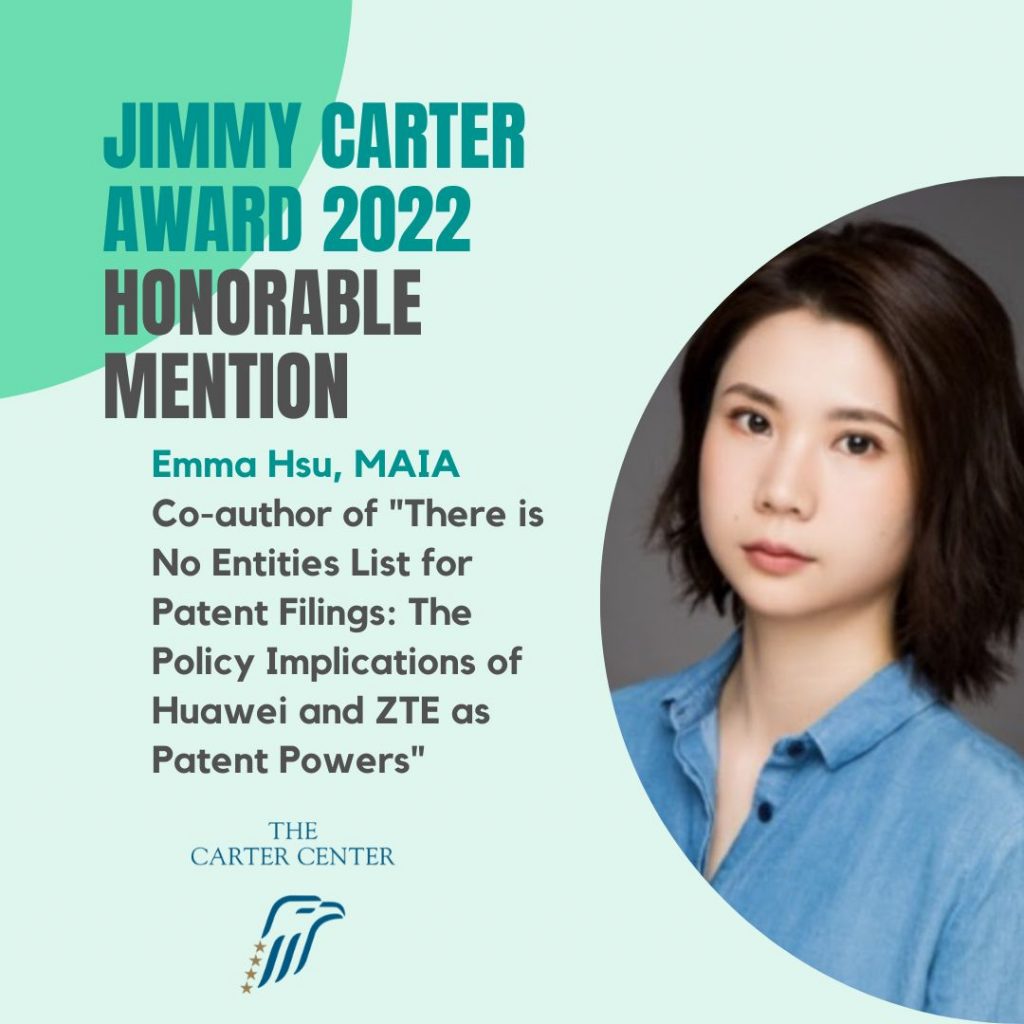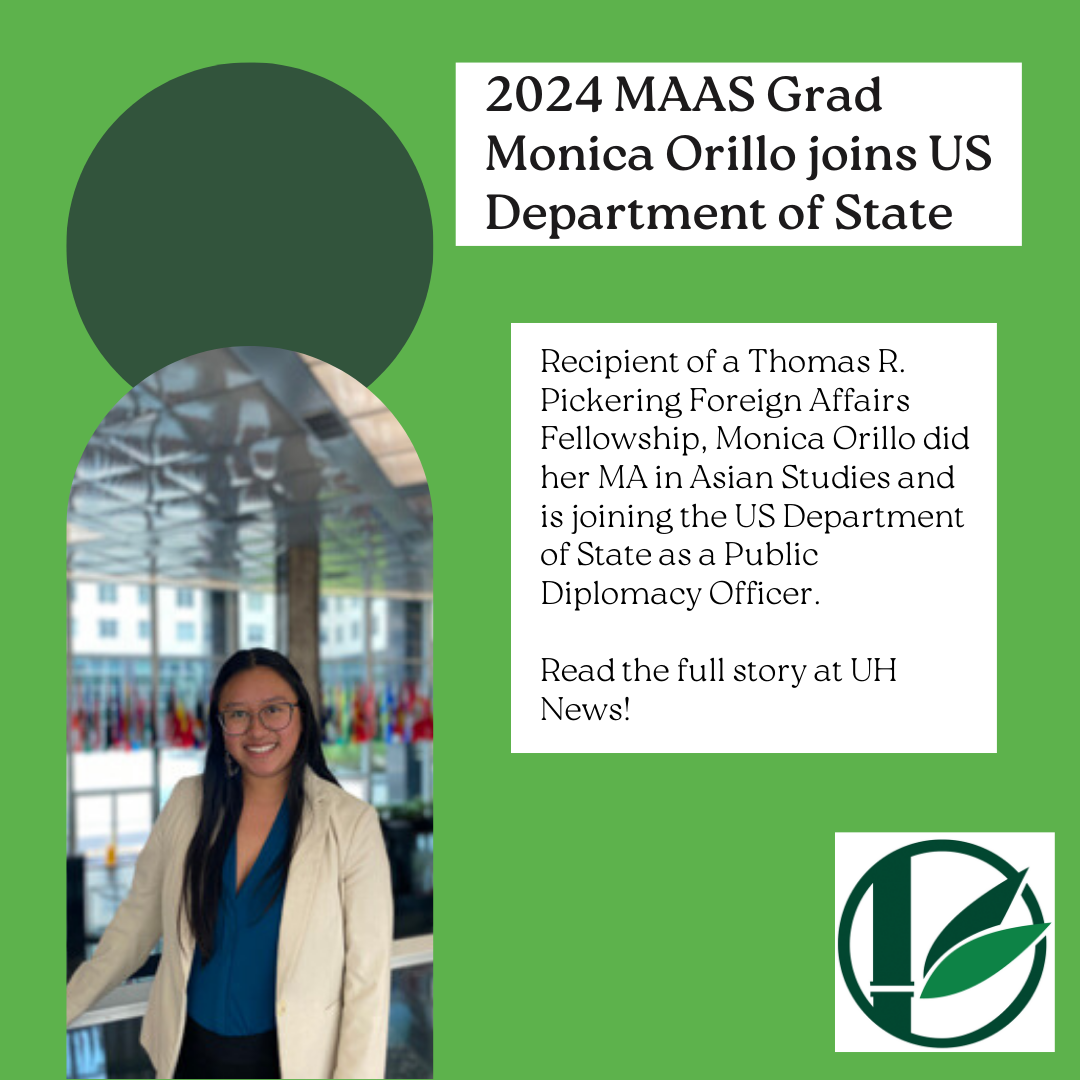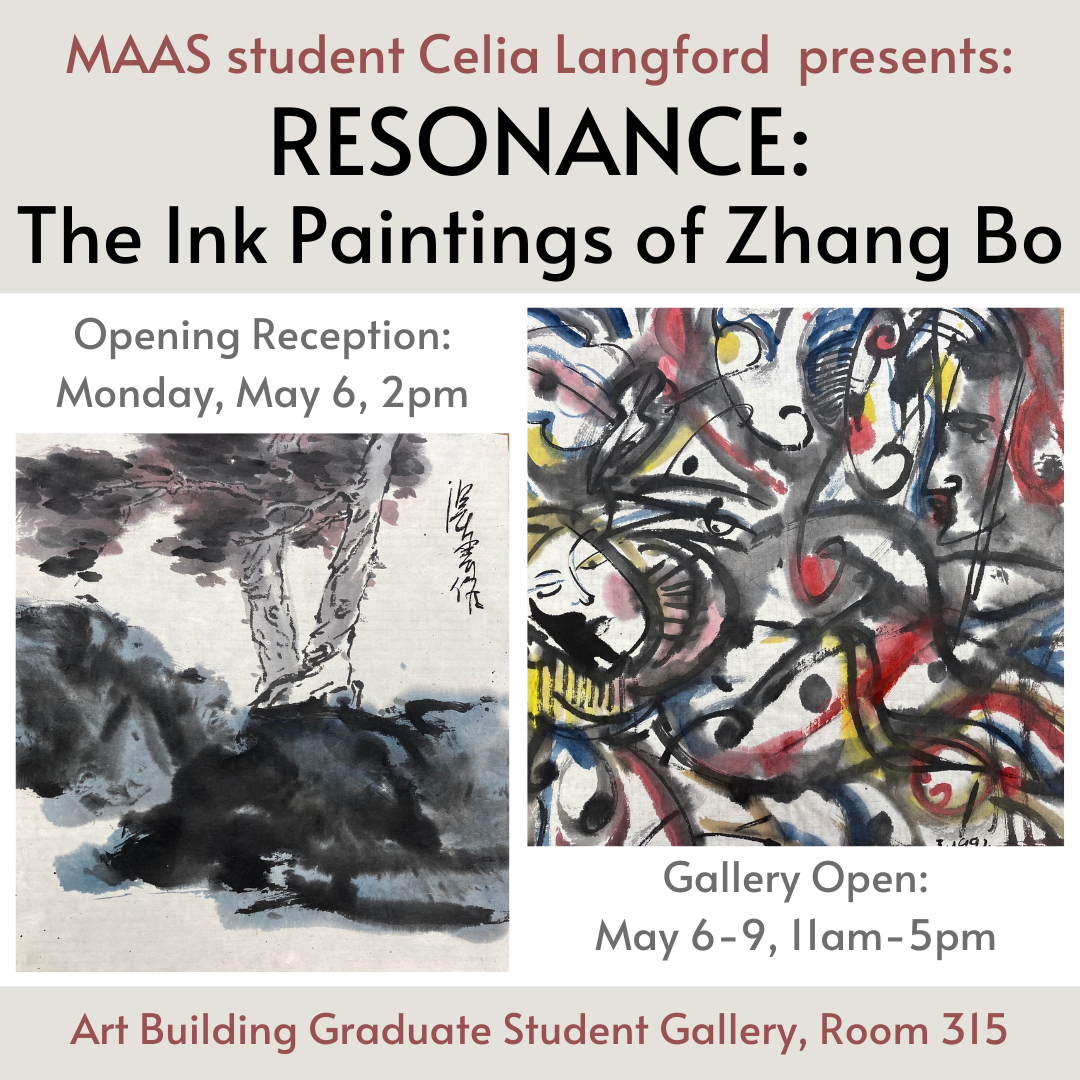Monica Orillo’s graduate education at the University of Hawaiʻi at Mānoa served as a launching pad to…

Emma Hsu awarded Honorable Mention for the Jimmy Carter Award

Congratulations to MAIA student Emma Hsu! She co-authored a paper that won Honorable Mention in the 2022 Jimmy Carter Award for Best Paper on U.S.-China Relations and Chinese Foreign Policy competition sponsored by the Young Scholars Forum on US-China Relations at the Carter Center. Her paper, co-authored with UC-Berkeley PhD student Philip Rogers, is titled ‘There is No Entities List for Patent Filings: The Policy Implications of Huawei and ZTE as Patent Powers’. For more information, please see https://uscnpm.org/2022/10/11/announcing-the-winners-2022-young-scholars-forum-on-us-china-relations/
Article Abstract
“While U.S. policy toward China has included tariffs, export controls, and more stringent reviews on inbound investment, filing for U.S. patents remain an open avenue for Chinese companies that have received even the most intense scrutiny. Focusing on the cases of Huawei and ZTE, this report assesses the policy nuances of Chinese patenting activity in the United States. Patent data for these companies’ filings in conjunction with the Patent Cooperation Treaty system indicate persistent effort in the U.S. market in both relative and absolute terms even as geopolitical tensions have mounted. Because of opportunities to monetize intellectual property through licensing, persistently building patent portfolios may make it possible to impact U.S. markets even when directly selling hardware is not possible. Data on granted patents declared as standard essential in the United States and filed in conjunction with the PCT system show that, at least on paper and in aggregate terms, Huawei and ZTE have standard essential patent portfolios that are qualitatively comparable to major competitors not subject to constraints in the U.S. market. Though the protection of U.S. intellectual property in China understandably dominates policy discourse in the United States, this report calls for attention to Chinese intellectual property in the United States to better inform responses to the technological rivalry between the two powers. It recommends U.S. policy that addresses the rise of Chinese patenting power by building windows to understand the capabilities of a competitor while upholding the values of a global innovation system that benefits the world at large.”





